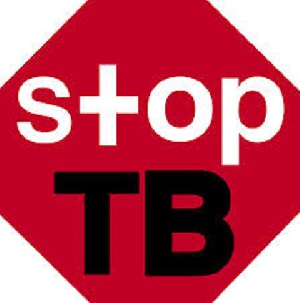Ghana will on Wednesday, March 24th, join the rest of the world to mark World TB Day amidst COVID-19 with a press briefing and community TB screening at Tulalu, Ashiaman.
The usual year-long activities nationwide would be absent this year due to COVID-19. The Director-General of the Ghana Health Service (GHS), Dr Patrick Kuma-Aboagye will brief the media at the Service’s premises followed TB screening in the day.
The global theme for the day is: “The Clock is Ticking! But Ghana will mark the day with a local theme: “The Clock is Ticking to Reach the End TB Target by 2035”.
Speaking to the Ghana News Agency, Dr Yaw Adusi-Poku, Programme Manager of the National Tuberculosis Programme of the Ghana Health Service (GHS) , the theme conveyed the message that “the world is running out of time to act on the commitments to end TB made by global leaders.”
This he said was critical in the context of the COVID-19 pandemic that had put End TB progress at risk, and the need to ensure equitable access to prevention and care in line with WHO’s drive towards achieving Universal Health Coverage. World TB Day is a day set aside to commemorate the discovery of Mycobacterium tuberculosis, the bacillus that causes tuberculosis (TB) by Dr. Robert Koch in 1882.
It is a day to also educate the public about the impact of TB, share successes in TB prevention and control and raise awareness of the challenges that hinder progress towards the elimination of this devastating disease.
Dr Adusi-Poku noted that activities to be carried out intend to raise public awareness about the devastating health, social and economic consequences of TB and the need to step up efforts to end the global pandemic.
“TB remains the world’s number one deadliest infectious killer. Each day, about 3014 people lose their lives to TB”, he said.
He explained that as part of the response to end TB in Ghana, the NTP had put in place interventions throughout the country to improve on case detection.
“These interventions include, intensified TB case finding, sputum sample transport and universal access to GeneXpert test, improving TB case detection among persons living with HIV (PLHIV), and putting all HIV patients on Preventive Therapy to stop them from developing TB (TPT).
Others are improving TB case detection among other high-risk groups (Diabetics, Children etc), improving contact tracing &investigations in households of index pulmonary TB cases, and improving the management of MDR TB in Ghana.
Currently, in Ghana, 44,000 new cases are recorded per year, 15,000 deaths due to TB per year, 870 drug-resistant TB cases per year with an estimated impact on the nation at the end of 2020, among the population of about 30,000,000 Ghanaians.
Every hour in Ghana, five people are infected with TB with two people dying from it.
In 2020, the NTP identified, diagnosed and put on treatment 12,333 and 591 children diagnosed.
TB is transmitted from a sick TB patient as a droplet infection through coughing, singing and sneezing. Inhalation of these droplets by an uninfected person may cause infection. It mostly affects the lungs but can affect other organs in the body such as the pleural cavity, liver, scrotum, kidney, intestine and womb. This is known as extrapulmonary tuberculosis. In addition, tuberculosis may also occur in animals such as cattle and this is referred to as bovine TB.
Symptoms of TB include cough weight loss (poor weight gain in children), fever, tiredness, night sweats, chest pain and cough with blood-stained sputum. TB is a preventable and curable disease. Diagnosis and treatment is available free of charge in all public and accredited private health facilities.
Health News of Tuesday, 23 March 2021
Source: GNA













